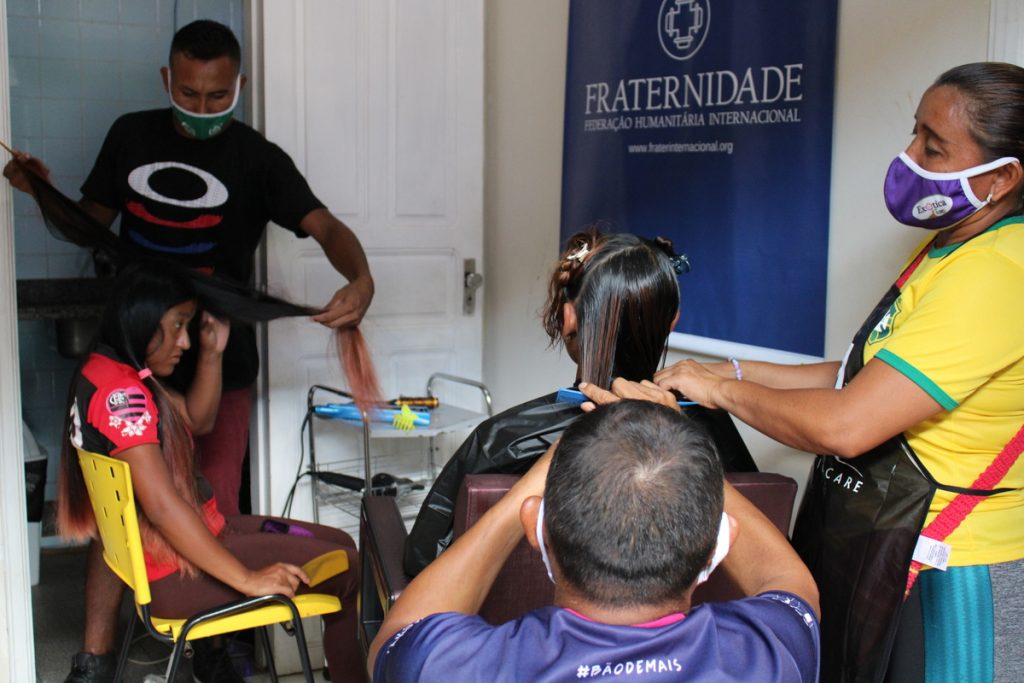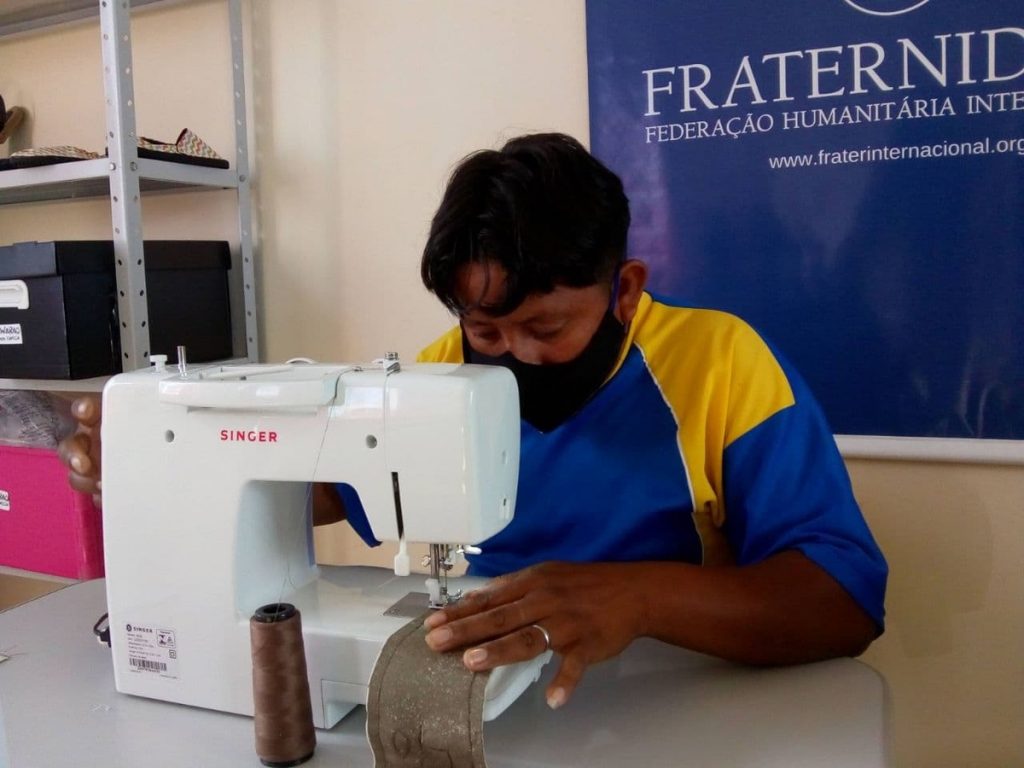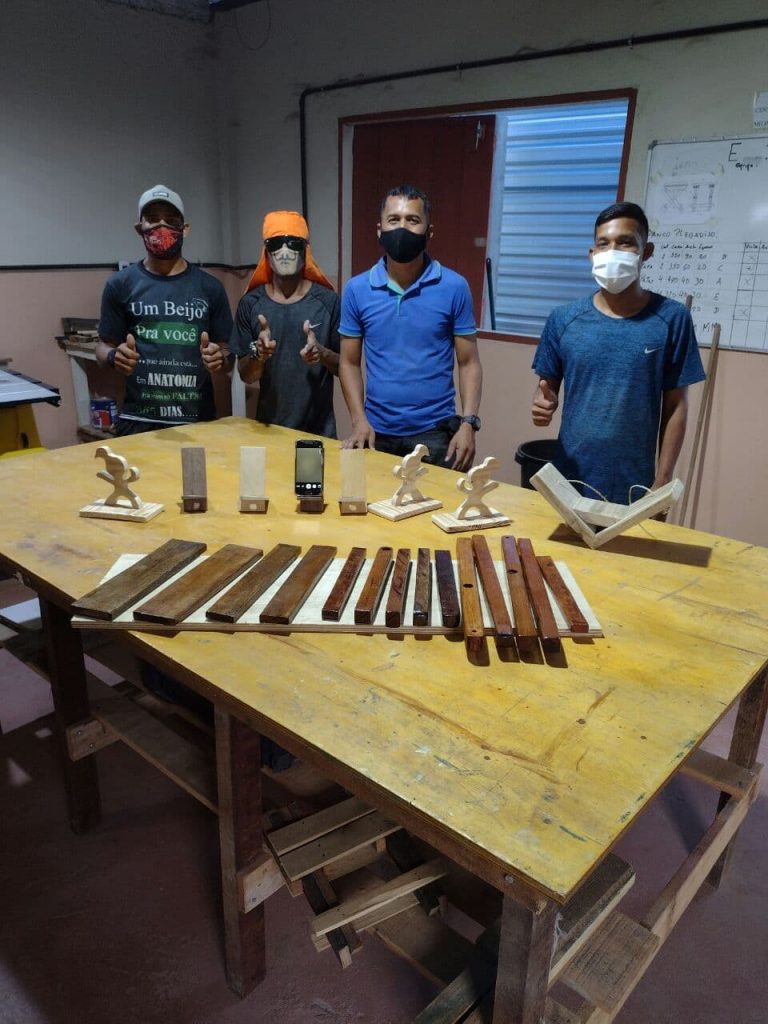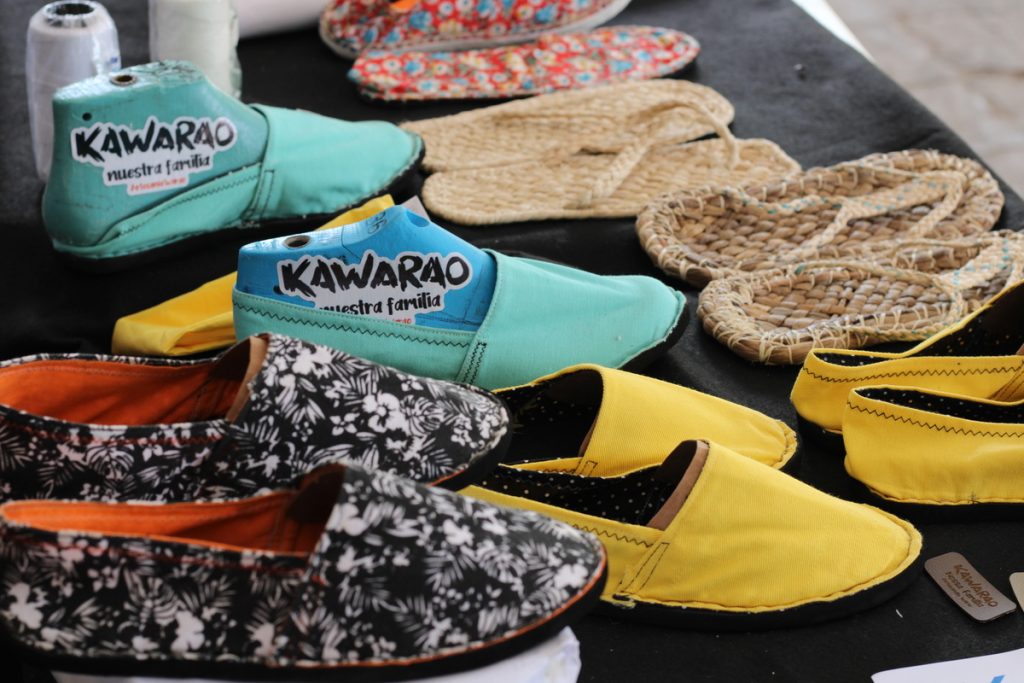In the last five months, the Livelihoods – Lasting Solutions Sector team of the Fraternity – International Humanitarian Federation (FIHF) has been focusing a greater effort on encouraging entrepreneurship among those living in the shelters under its management in Roraima.
Partner institutions such as Visão Mundial and the Pan-American Development Foundation (PADF) are offering their support, and investing in resources such as raw materials and tools that are needed so that those in the shelters can carry out their projects or business ideas.
Sister María de Kibeho, a monk of the Grace Mercy Order and coordinator of the handicrafts and entrepreneurship area, explains how the process begins: “everything begins by listening and observing what the shelter people want or plan to do with their lives. It is a stage we call becoming aware, and is done by the Humanitarian Fraternity (FIHF) team.”
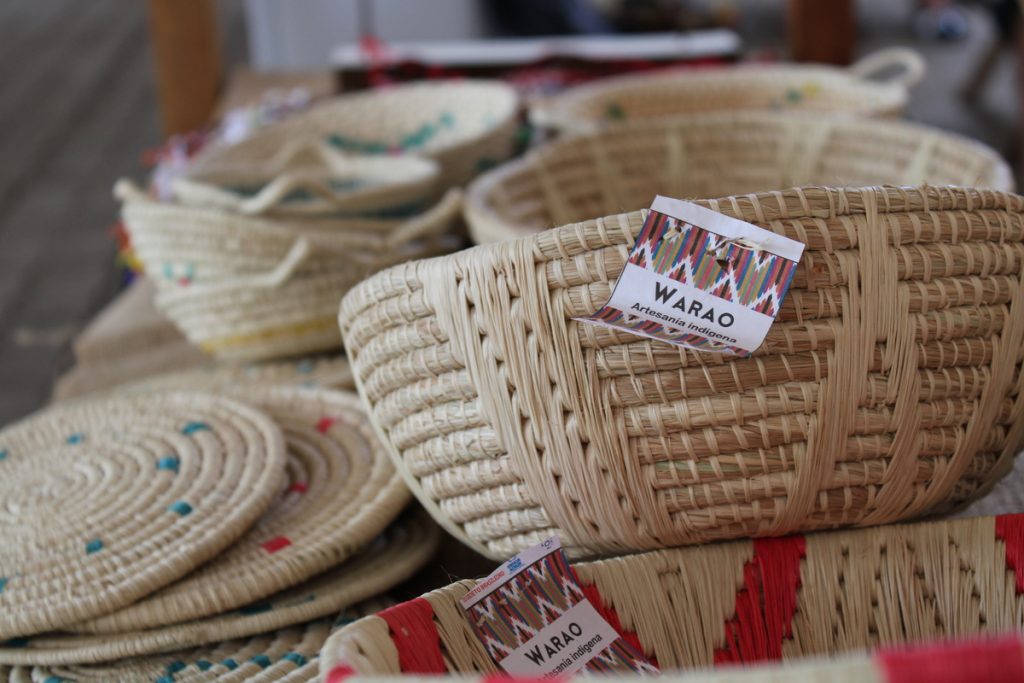
The training currently takes place in the following areas: sewing, shoemaking, carpentry, electricity, masonry, food (bakery and food-handling), gardening, beauty (barbershop, manicure and pedicure), IT, among others.
The Indigenous Cultural and TrainingCenter (ICTC), which was inaugurated at the beginning of this year, houses the part of training to do with sewing and shoemaking, beauty salon and IT, and it is in the Jardim Floresta Shelter where the training sessions on food takes place, because there is a bread shop set up there, with all the necessary equipment.
After going through training, if there is an interest, the shelter people receive full monitoring for the development of their business plan, which has the following components:
- Human Component – conversation meetings, entrepreneurial workshops, training of work teams, reinforcement of personal skills, among others;
- Marketing Component – establishment of the brand, digital or physical catalog;
- Operational and Production Component – establishment of production lines or purchasing services, raw materials, production sites, among others;
- Financial Component – initial investment analysis, materials costing, budget, pricing, among others;
- Legal Component – Trademark registration, MEI (Individual Microentrepreneur) registration, among others.
And lastly, looking for events and shows to go to the market and find potential customers.
Examples of Success – Projects and Entrepreneurs
Ecological Sewing – Juana
Juana Margarita, a Venezuelan who lives in the Jardim Floresta Shelter, after going through the training on sewing from SENAC, became an overseer of the practice groups of the ICTC, monitoring other shelter women in teaching how to make various types of clothing.
She creates everything from uniforms for other business people to wedding dresses for the Warao in the shelters. She also encourages other ventures, such as the support given from the beginning for the manufacture of alpargatas (canvas shoes) in Kawarao brand fabrics.
She has currently begun to use recyclable materials for the production of wallets, purses, bags, and even ecological absorbent products, adding the issue of sustainability to her brand. She has a business catalog on the WhatsApp Business app.
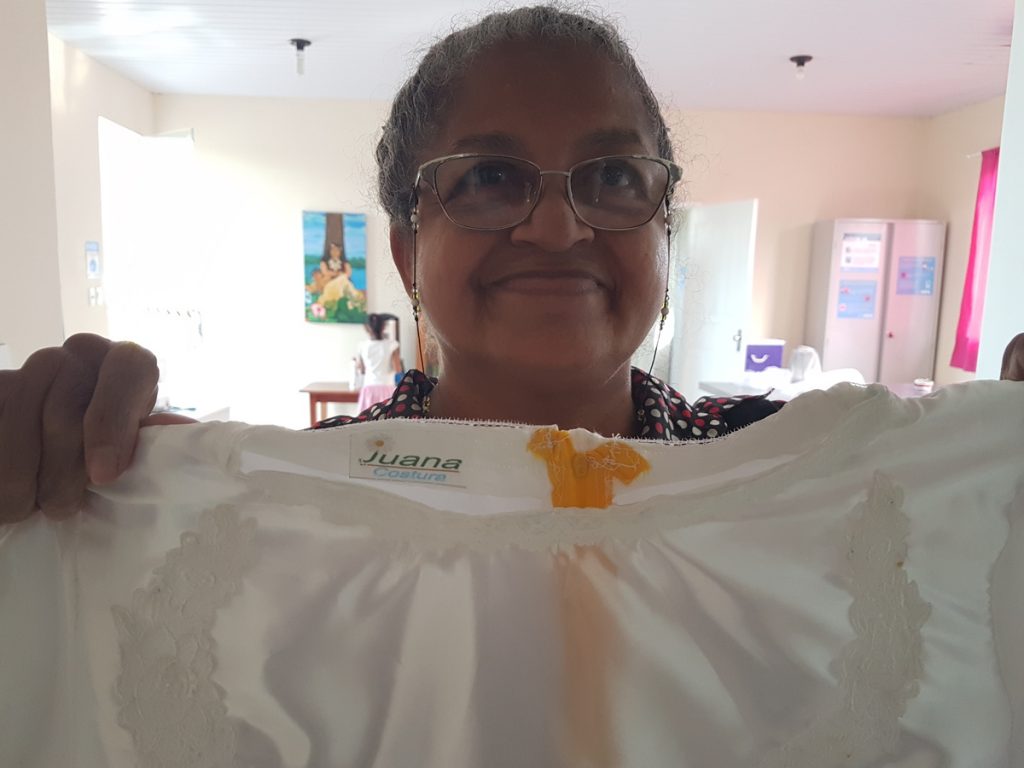
KAWARAO – Manufacture of handmade alpargatas (canvas shoes)
Bruno Avilio Arintero and Olive Niel Heredia, both from the Pintolândia Shelter, began the project through the encouragement of Carlos Carambia, of Argentina, a humanitarian server of the HumanitarianFraternity (FIHF).
The fabric alpargatas (canvas shoes) were a success from the beginning and the entrepreneurs had to expand, bringing four more members of their family into the business.
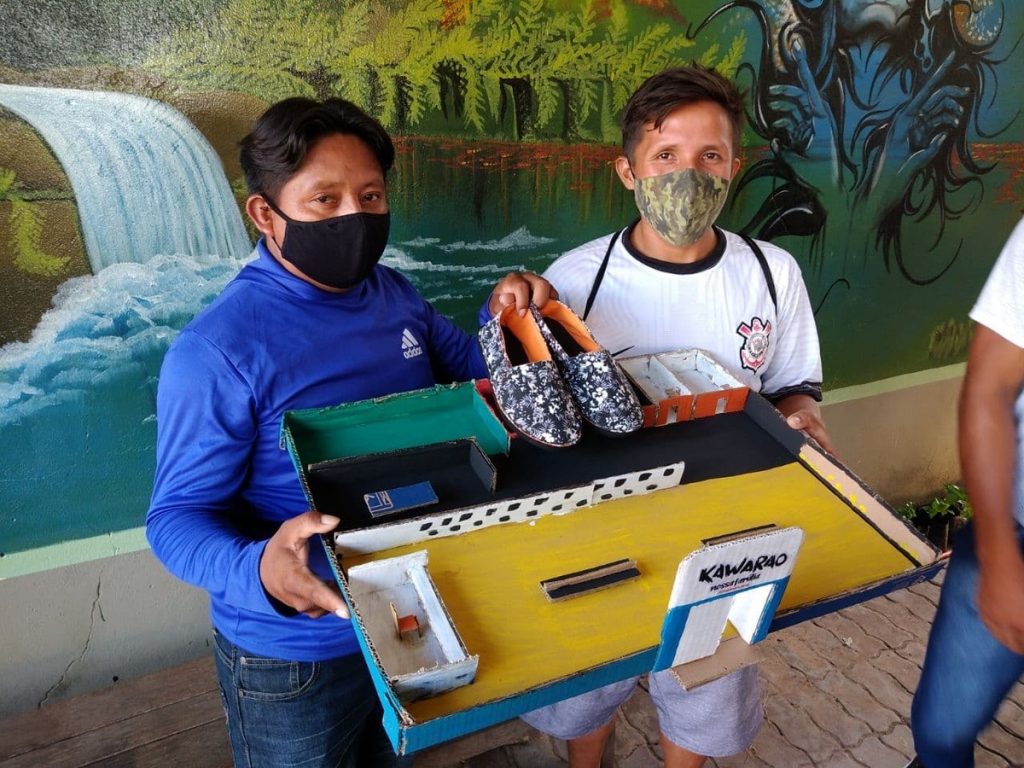
Bread Shop and Confectionary – León Enrique
From the time he and his family entered the Pintolândia Shelter four years ago, León Enrique has taken advantage of several opportunities for training. He has done several courses, and ended up becoming an entrepreneur in the area of bread-making.
He received help from the PADF to get the necessary materials for beginning the production of bread and has been organizing himself to expand his knowledge and learning, and currently receives orders from several clients, keeping his production and sales at the ICTC.
Living Pharmacy in Wood – Mauricio Fiscal Grande
Bringing together two areas of knowledge and two passions, medicinal plants and carpentry, Mauricio Fiscal Grande offers people the opportunity to have healing plants in their homes. For this, he has a testing shop located in the ICTC.
Those are projects that are in a more advanced process of monitoring, and several others are in progress, and as Sister María de Kibeho affirms, “accompanying the businessperson is a constant challenge, but it is precisely the obstacles or difficulties that the businessperson faces daily that strengthens them and helps them move forward. Seeing the shining eyes of whomever continues with the process is the reward of a great effort.”

